Webinar with a focus on the EU Commission’s revision of the trans-European transport network
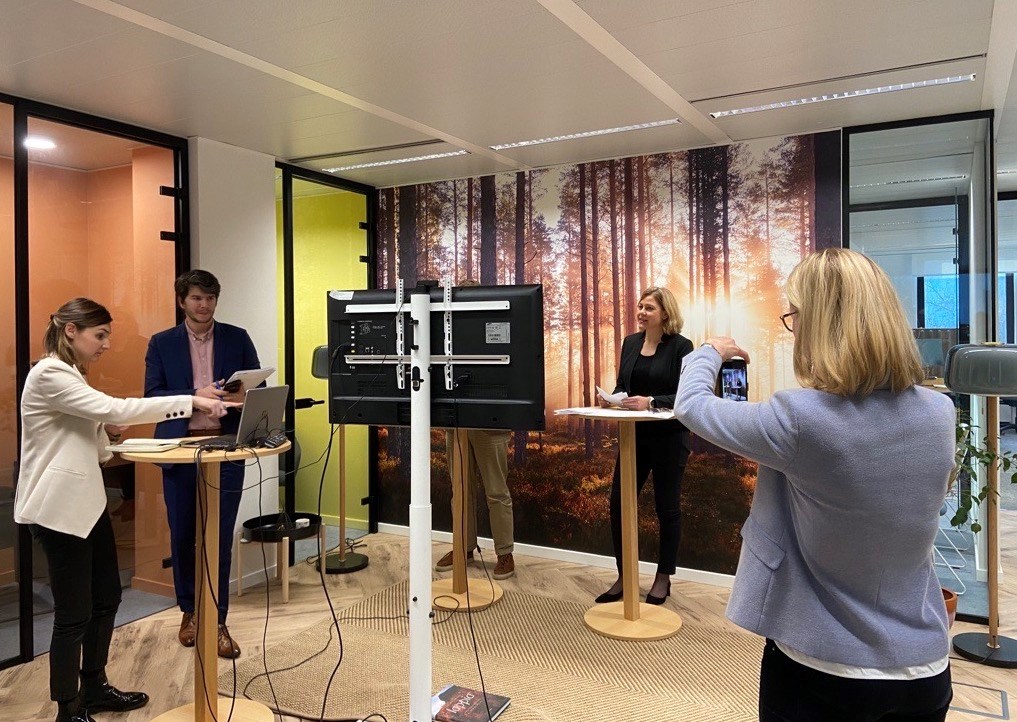
On Tuesday, February 1, the Conference of Peripheral Maritime Regions’ (CPMR) Baltic Sea Commission and North Sea Commission organised a joint webinar on how the trans-European transport network (TEN-T) can contribute to sustainable and economic growth in northern Europe. The hybrid event, which was broadcasted from North Sweden’s office in Brussels, had the pleasure of welcoming three members of the European Parliament (MEP) - Mr Jakop Dalunde and Ms Henna Virkkunen in person, and Mr Erik Bergkvist joining us online.
On February 1, the Baltic Sea Commission, in which Norrbotten, Västerbotten and Jämtland-Härjedalen are member regions, and the North Sea Commission, two of CPMR’s six Geographical Commissions, arranged a joint webinar entitled “How TEN-T can contribute to sustainable and economic growth in Northern Europe". The webinar was broadcasted from North Sweden’s office in Brussels and attracted over 100 participants from both local, regional, and national level organizations, as well as the European Commission and the European Parliament. On the agenda was the Commission’s new proposal on TEN-T, which was presented on December 14, 2021. TEN-T defines the main transport routes within the EU and sets mutual targets for the completion of the network. The regulation is a directly applicable law in the Member States.
During the meeting, representatives from several actors presented their view on the proposal. The session was kicked off with Mr Bosse Andersson, Chair of the CPMR Baltic Sea Commission Transport Working Group, and Mr Preben Friis Hauge, Chair of the CPMR North Sea Commission Transport Working Group presenting the EU Commission’s standpoint and their suggestions for alterations.
- The TEN-T regulation should take into account territorial realities of the Baltic Sea Regions in order to achieve an effective and sustainable transport system in these regions and in the EU, said Mr Bosse Andersson.
Mr Herald Ruijters, Director at Directorate-General for Mobility and Transport at the European Commission, presented the new TEN-T proposal and explained that the TEN-T will be implemented in three stages, with targets for 2030, 2040, and 2050. Mr Ruijters stressed that the Commission agrees with CPMR in many respects since the EU’s objective is to connect member countries through TEN-T and promote cross-border routs. At the same time, he underlined that it is essential that national level politicians show support for these ambitions in their national plans for transport.
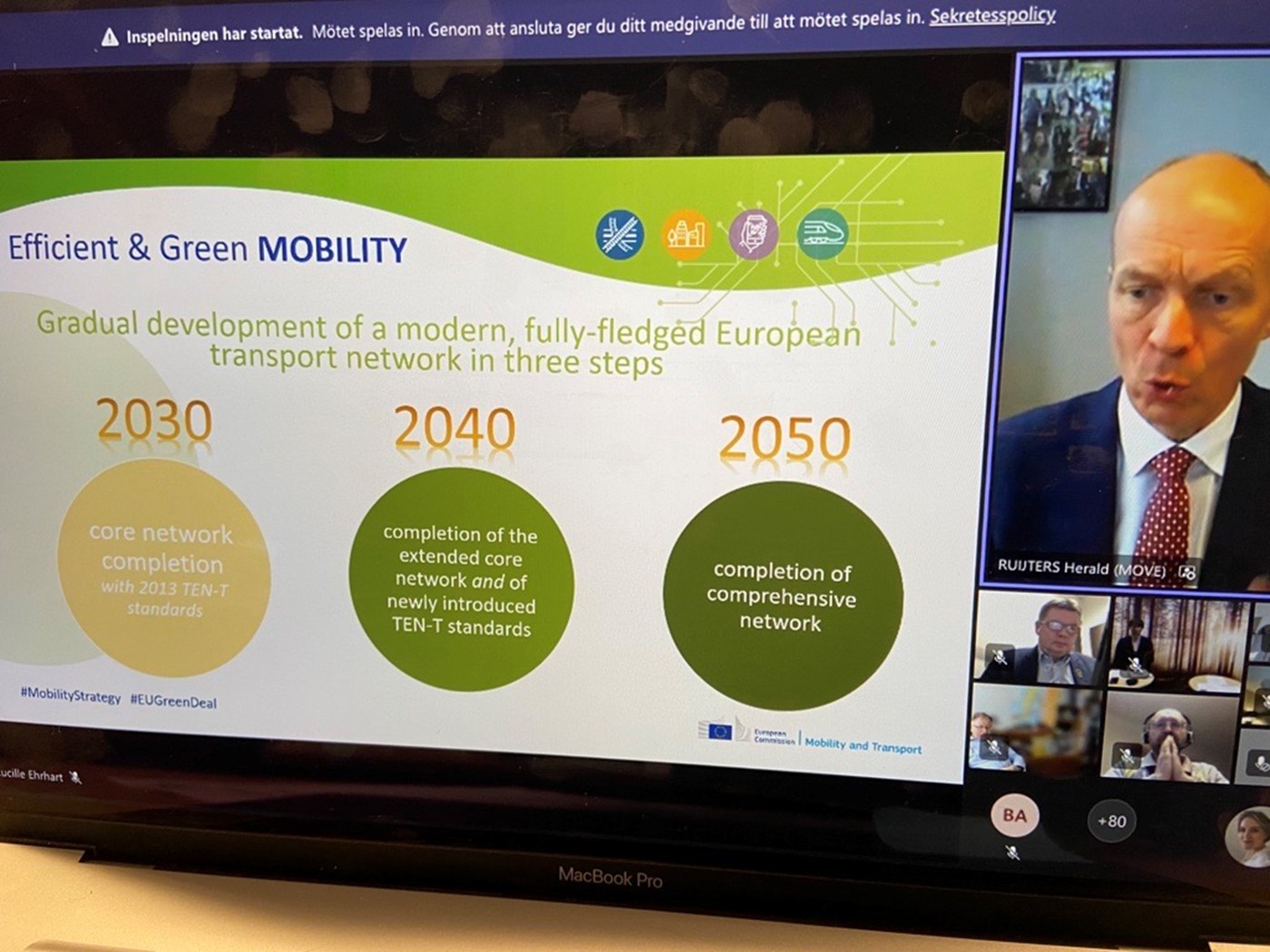
Regional and local politicians look beyond national borders
Several speakers emphasized the regions’ role in advocating for green and effective mobility, including MEPs Mr Jakop Dalunde and Mr Erik Bergkvist, who recently became a member of the European Parliament’s Transport Committee.
- Local and regional actors tend to think bigger by looking beyond national borders, Mr Bergkvist stated. Regional dialogue and cooperation are crucial to shape the future of TEN-T, and it is cooperation that takes place at the regional level. The EU needs to understand that the labour market in northern Scandinavia is linked together through efficient transport nodes and cross-border transport routes for the benefit of both Sweden and the entire EU.
Mr Jakop Dalunde also emphasized the importance of transport to promote the whole of Sweden.
- It is the local and regional politicians who make an effort to connect the periphery with the center. We need a more European transport politicy that connects more areas. Such investments will result in higher societal benefits than investing in new city roads, said Mr Dalunde.
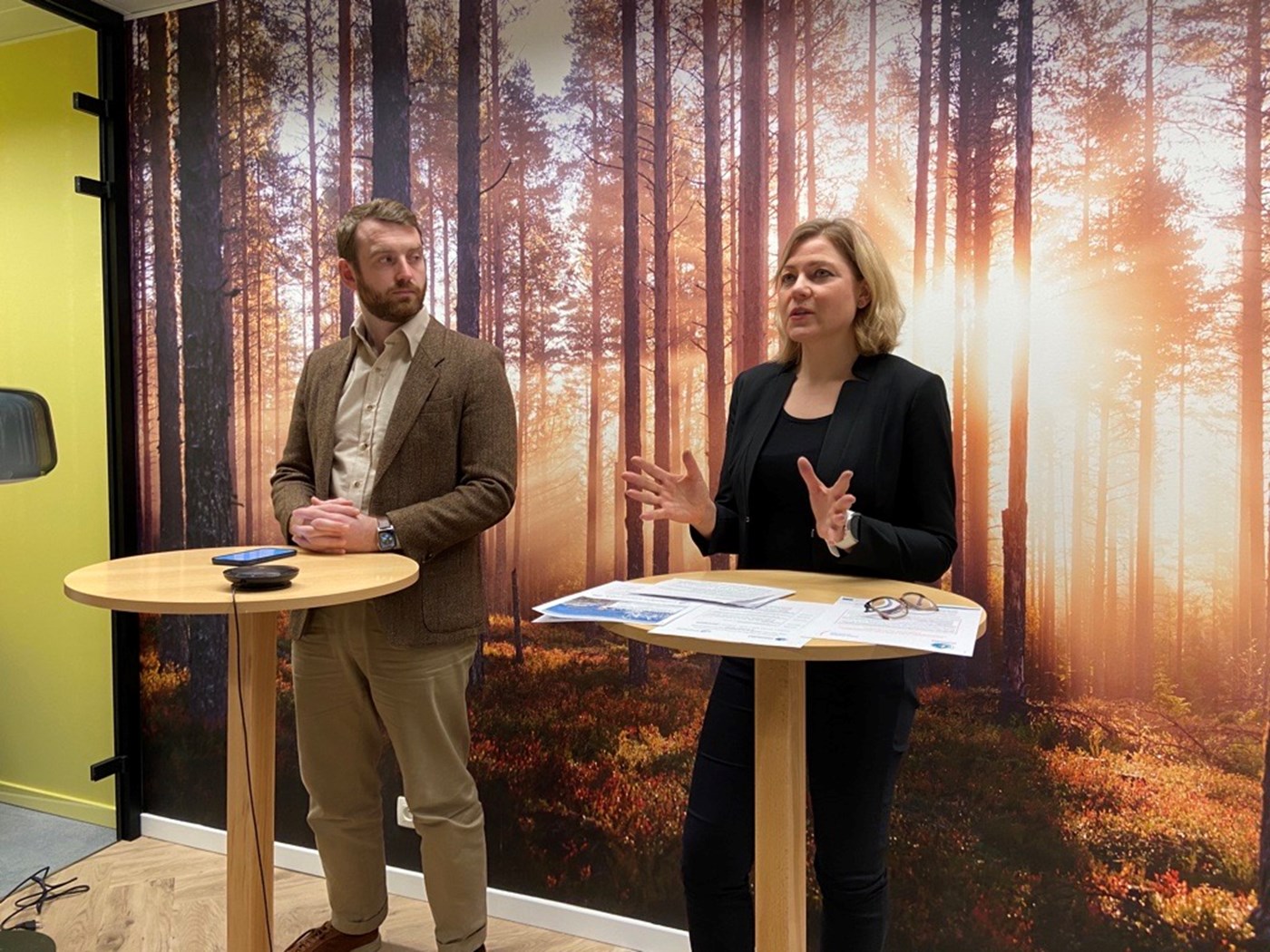
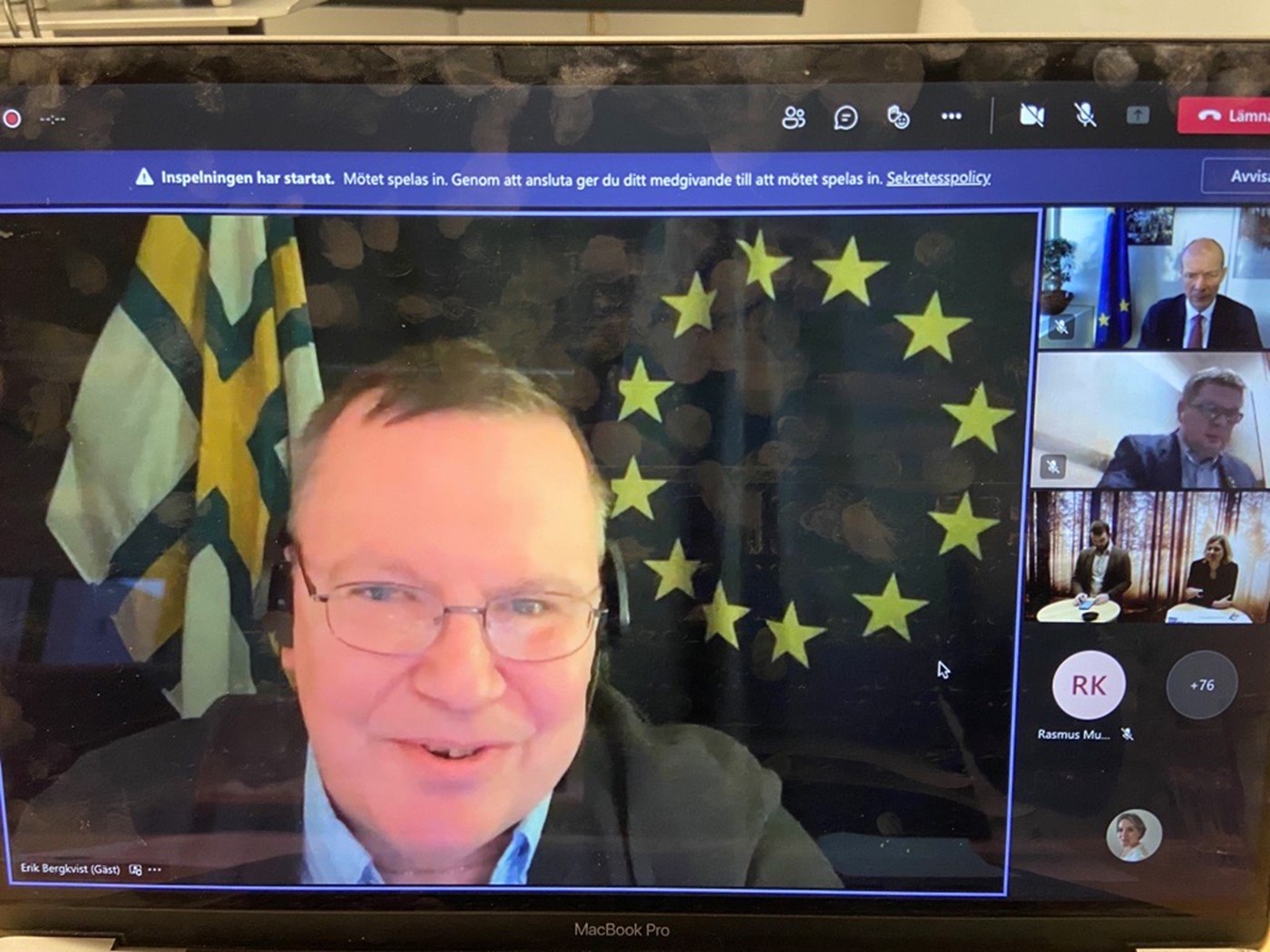
The position of the Regional Offices
Lotta Rönström from North Sweden’s office and Saara Nuotio-Coulon, Head of the Turku-SouthWest Finland European Office presented the positions of the Baltic Sea Commission, focusing on the desired adjustments to the TEN-T maps. Ms Rönström highlighted the need to take into account the unique geography of northern Sweden, characterized by long distances. Additional TEN-T nodes are needed to support these areas where a rapid green transition is taking place.
- North Sweden and Finland are at the forefront of the green transition, but it is crucial that the large green industrial investments that take place are met with a rapidly developing sustainable infrastructure. In order to achieve an effective switch of cargo transport from road to rail and shipping, more of our key nodes, such as ports and terminals, should become part of the trans-European transport network, Ms Rönström emphasized.
This was also stressed by Mr Dalunde, who especially highlighted Härnösand, Örnsköldsvik, Skellefteå and Piteå as important ports to integrate into the TEN-T network. Regarding urban nodes, Ms Rönström continued:
- A labour market region looks different in our geography where many commute very long distances to get to and from work every day. An urban node should therefore be defined based on functionality, for instance by identifying “twin cities”, or even looking at how three cities interconnect though a common node.
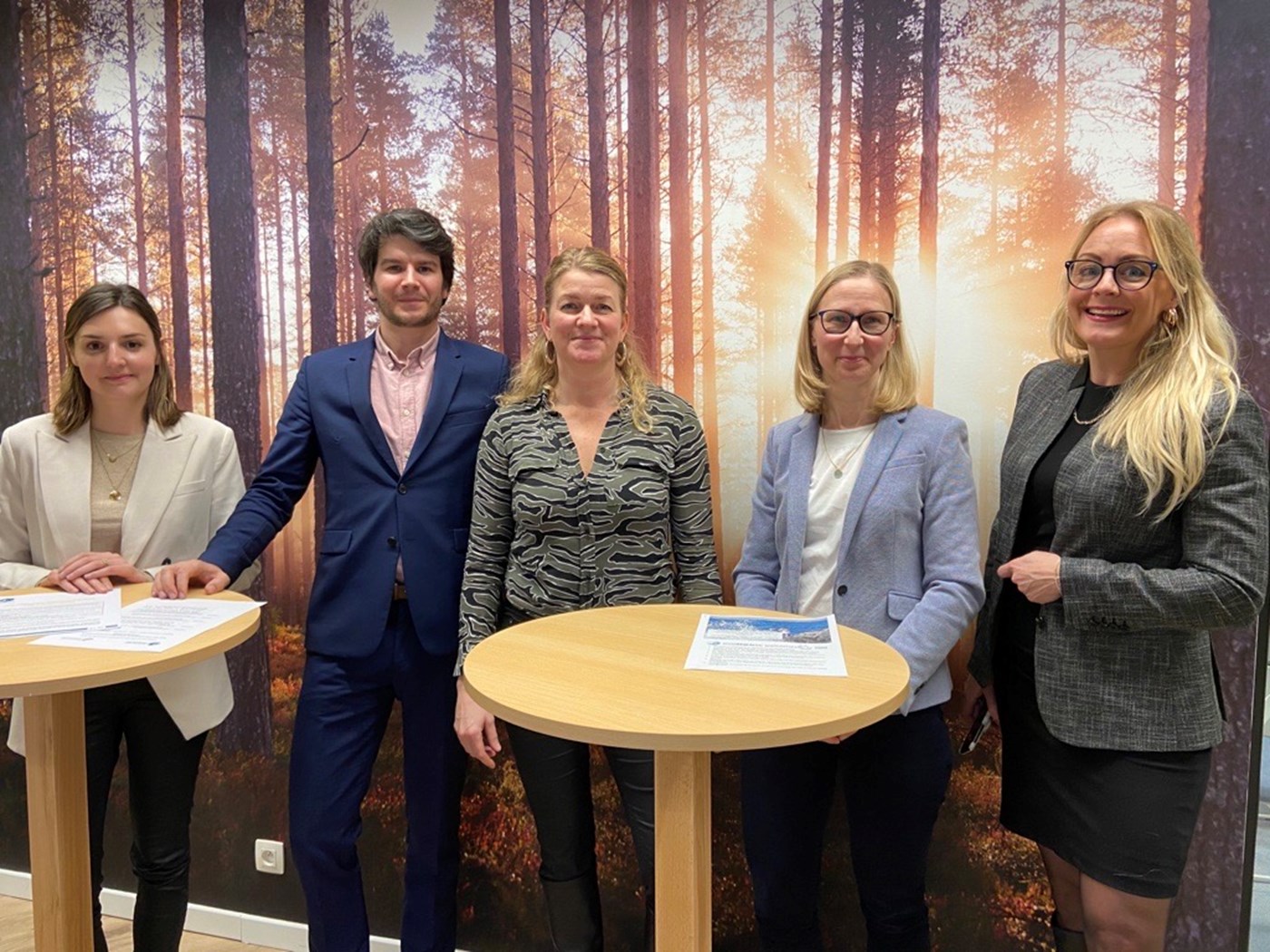
Mr Torbjörn Haak, Ambassador and Deputy Permanent Representative of Sweden to the European Union, said that the Swedish government has not yet taken a position on the EU Commission’s proposal, but stated that Sweden is looking closely into identifying the needs in parts of the country with long distances and poor means of transportation.
Read North Sweden’s news about discussions about infrastructure in Northern Sweden onboard on the Connecting Europe Express, here.
Read the presentations from the meeting here.
Watch the event here.
/Vilma Johansson and Julia Hanson
The TEN-T proposal is now subject to negotiation between the European Parliament and the European Council of Ministers, and an agreement will probably not be in place until the Swedish Presidency of the EU in the spring of 2023.
